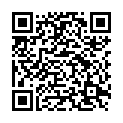|
|
|
| Module code: BSP-11 |
|
|
4V+2S (6 hours per week) |
|
10 |
| Semester: 3 |
| Mandatory course: yes |
Language of instruction:
German |
Assessment:
BSP-11.1/.2: Written exam (K) (bn) 70%
BSP-11.3: class presentation (R) or term paper (bn) 30%
[updated 20.05.2020]
|
BSP-11 (P322-0058, P322-0059, P322-0060) Social work and early childhood, Bachelor, ASPO 01.10.2017
, semester 3, mandatory course
BSP-11 (P322-0058, P322-0059, P322-0060) Social work and early childhood, Bachelor, ASPO 01.10.2019
, semester 3, mandatory course
|
90 class hours (= 67.5 clock hours) over a 15-week period.
The total student study time is 300 hours (equivalent to 10 ECTS credits).
There are therefore 232.5 hours available for class preparation and follow-up work and exam preparation.
|
Recommended prerequisites (modules):
None.
|
Recommended as prerequisite for:
|
Module coordinator:
Prof. Dr. Mario Schreiner |
Lecturer: Prof. Dr. Mario Schreiner
[updated 26.08.2019]
|
Learning outcomes:
After successfully completing this course, students will:
- be able to identify basic structures, conditions and forms of biographical socialization in the light of theory and empiricism.
- be able to present insights into life course and biography research and will have gained insight into the significance of transitions in the course of life.
- have learned and be able to apply relevant theoretical and methodological concepts of biographical analysis and crisis management (e.g., curves, crisis routine model).
- have developed a deeper understanding of the diversity, ambivalence, contradiction and creativity of biographical and life course-related processes.
- be able to take a perspective characterized by openness, listening skills, observation, patience and understanding. Recognition of the importance of continuous further education and training
[updated 20.05.2020]
|
Module content:
BSP-11.1 Lecture: Life Situations and Coping Mechanisms
Key findings on biographical socialization
- Concepts of generation, biography and identity
- Man in the conflict between individual and institutional expectations and influences
- The importance of different institutions for biographical developments, in particular the central importance of families for the formation of sociality.
- Biographical crises as a risk and an opportunity
- Process structures of the curriculum vitae
- Methodological challenges of biographical research: Man in the mode of narration, ability and failure
BSP-11.2 Lecture: Social Inequality, Heterogeneity and Social Problems
BSP-11.3 General seminar on 11.1 and 11.2
[updated 20.05.2020]
|
Teaching methods/Media:
- Lecture
- Independent study: Reading and processing scientific literature
- Discussions in small groups and with the whole class
- Oral discussion about module topics (seminar discussion)
- Written analysis of the course´s topics (short writing assignments)
[updated 20.05.2020]
|
Recommended or required reading:
- Baumgart, Franzjörg (Hrsg.) (2008). Theorien der Sozialisation. Erläuterungen - Texte _ Arbeitsaufgaben. 4., durchgesehene Auflage. Bad Heilbrunn: Verlag Julius Klinkhardt.
- Garz, Detlef; Zizek, Boris (2014). Wie wir zu dem werden, was wir sind. Sozialisations-, biographie- und bildungstheoretische Aspekte. Wiesbaden: Springer VS.
- Griese, Birgit (Hrsg.) (2010). Subjekt Identität Person. Reflexionen zur Biographieforschung. Wiesbaden: VS Verlag.
- Hurrelmann, Klaus / Bauer, Ullrich / Grundmann, Matthias / Walper, Sabine (Hrsg.) (2015). Handbuch Sozialisationsforschung. 8. vollständig überarbeitete Auflage. Weinheim und Basel: Beltz-Verlag.
- Joas, Hans (Hrsg.) (2007). Lehrbuch der Soziologie. 3. überarbeitete und erweiterte Auflage. Frankfurt a. M.: Campus.
- Lamla, Jörn / Laux, Henning / Rosa, Hartmut / Strecker, David (Hrsg.) (2014). Handbuch der Soziologie. Konstanz: UVK.
- Tillmann, Klaus-Jürgen (2010). Sozialisationstheorien. Eine Einführung in den Zusammenhang von Gesellschaft, Institutionen und Subjektwerdung. 16. vollständig überarbeitete und erweiterte Neuausgabe. Reinbek bei Hamburg: Rowohlts Enzyklopädie.
[updated 20.05.2020]
|


